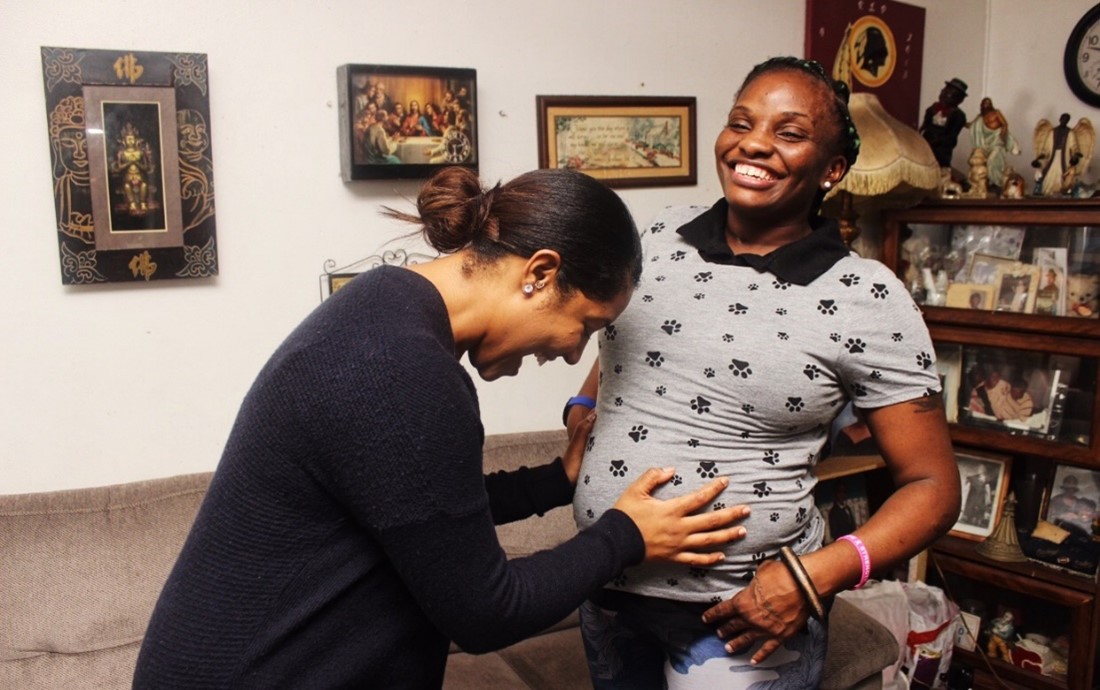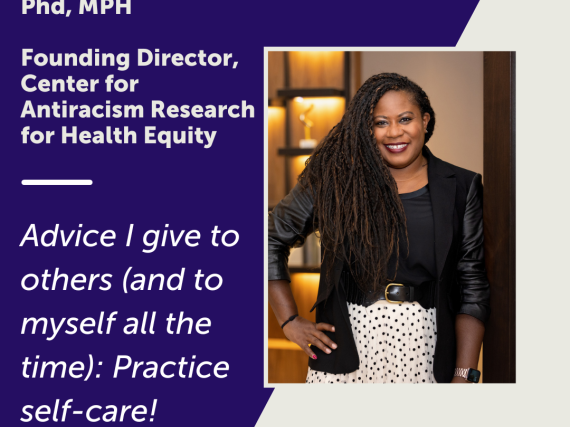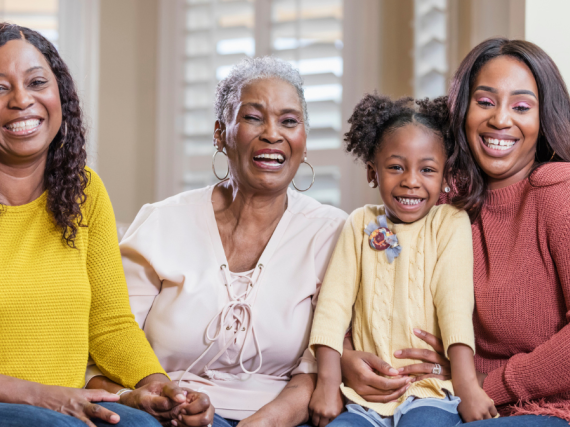Mamatoto Village: Empowering Black Women to Thrive
“We are the community that we serve,” said Mariah Oates, the Communications Manager of Mamatoto Village. In 2013, Aza Nedhari, LM, CPM, MS, and Cassietta Pringle, IBCLC, co-founded Mamatoto Village to combat health disparities among Black mothers, babies, and their families.
“Mamatoto” is a Swahili word meaning ‘motherbaby,’ reflecting the idea that mom and baby are not separate people, but rather one, connected entity. Mamatoto Village’s vision, “Healthy Mamas. Healthy Babies. Healthy Communities,” takes a holistic approach designed to take care of each woman and honor her journey. The Village’s team of midwives and doulas serve alongside 300+ families annually, providing physical and mental health support throughout pregnancy, birth, and parenting. Mariah described Mamatoto as a “culturally rooted” organization, and emphasized, “we come as we are, and we accept people where they are.”
Mamatoto provides accessible maternal, prenatal, and postnatal care primarily in traditionally underserved neighborhoods in Washington DC, as well as in nearby Prince George County, Maryland. Mamatoto Village also seeks to empower Black women to pursue careers in maternal health. "I CARE SIS,” the acronym for Mamatoto Village’s values, stands for: inclusivity, collaboration, advocacy, respectful care, equity, support, integrity and accountability, and service. Mariah also stresses the essential role of “cultural humility” in the work of Mamatoto Village. Understanding personal bias and being able to respect aspects of others’ cultural identity is crucial. The Village offers a space that will, “change the narrative that inadequate, inaccessible, and inefficient maternal healthcare for Black birthing people is the norm. It will serve as the backdrop in which Black womxn are empowered and provided with the resources and community they need to thrive as mothers, caregivers, and professionals.”
The small and mighty team of about 40 staff provide a wide range of services, including lactation support, birth education, mental health support, a mama and baby clothing closet, food pantry, and parenting programs. Through Mamatoto Academy, they offer a range of self-paced virtual classes, including “Understanding Birth,” and “Understanding your Newborn.” The Village holds a free weekly lactation support group, the MilkBar, as well as two monthly parenting groups, Queer Parent Mingle, and Mama Mingle. These groups embrace collective care, offering a safe space for Black mothers and parents to come together to share and support one another. They are also about to launch the Fatherhood Initiative to embrace Black women’s partners and help educate and support them as they become parents. In “A Black Mamas Guide to Living and Thriving,” Mamatoto Village notes: “Claiming wellness for ourselves as Black womxn and mothers deepen our ability to perform self-care for ourselves, supports our ability to give care to our children, partners, and families and works in the opposite direction of white supremacy and systemic oppression.” This in-depth guide discusses mental health, self-love, pleasure, nourishment, financial wellness, and “#ReclaimingBlackBirth.”
A community member and mother, T.Y., shared their testimonial on the care they received at Mamatoto:
“I had both of my babies with Mamatoto Village. Being involved with Mamatoto really helped, especially the first time. The birth support, for me, was the most important part. The education on childbirth was especially helpful. I also got a lot of help with social services. Seeing a group of Black women who looked like me, giving back to the community… it’s inspiring. The advice, the day and overnight support definitely helped.”
Mamatoto Village will soon open their first full-spectrum midwifery clinic, in Northeast Washington, DC. This space will be the first of its kind in the Ward 7 neighborhood of DC, and the Village “envision[s] a culture of safe, just, and dignified care for womxn, birthing people, and their families.” The team at Mamatoto have set up a fundraising campaign to help make this vision a reality, in order to hopefully open their doors in May 2022. Their goal is to raise two million dollars to help cover costs of construction, technology, supplies, and security. If you’re interested in learning more or helping the clinic launch, hear from the Village staff about the impact of their clinic will have on the community and consider donating.
Anna Sorensen got her B.A. in Women’s, Gender & Sexuality Studies and Spanish from The George Washington University. As a Digital Programs Fellow, she gets to use her passion for reproductive justice and health equity to help patients throughout the U.S. find contraceptive care.
Erika Hagen got her B.S in Social Work from The University of Wisconsin–Oshkosh. As a Digital Programs Fellow for Abortion Finder, she gets to use her passion for reproductive justice and health equity to help patients throughout the U.S. find access to abortion and contraceptive care.



